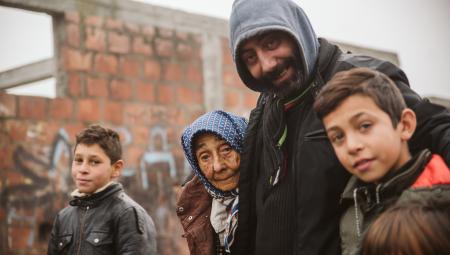Background
There are some rare conditions, with no cure, that affect individuals in their 50s. Their muscles, nerves, and the brain get older quicker than usual because of malfunction. Around 15,000 people in the UK have these rare diseases that cause rigidity, poor balance, and changes in mood, thinking, vision, ability to eat and communicate. Often, family members need to provide and organise care for these people because what the current health and care service is providing is not made for their needs or available to them. Services can be difficult to access and are not ‘’joined up’’. Moreover, people in different areas in England don’t have access to the same services. A wrong and late diagnosis is often given at first. Therefore, people affected need more testing and what they need is not provided when they need it.
Project Aims
- To explore the diversity of experiences that people with Atypical Parkinsonian Syndromes (APS) and their carers have with access and use of health and care services, understanding the context and complexity of provision in specific locations in England.
- To co-design system improvement recommendations based on available assets that can address people’s needs and preference, reduce disparities, and improve the responsiveness of health and social care in providing coordinated services.
Project Activity
- Building programme theories of what works, for whom and why using realist methodology.
- Asking people affected to share their experience of access and navigation of the current system to create a map of networks and services, guided by the Engineering Better Care system design toolkit.
- Understanding the current system strengths and involve service users and providers to create a
questionnaire for a follow-up study using a Discrete Choice Experiment (DCE) approach. - To disseminate results co-creating material with public contributors.
Anticipated or actual outputs
- Outputs of phase 1: Evidence-based programme theories of delivering care and support in different contexts to people with APS, including the different actors (stakeholders) and their needs, and a set of causal mechanisms operating within the APS care and support setting.
- Outputs of phase 2: Network map, list of transferable assets that facilitate quality improvement of the system of care and support for people with APS.
- Output of phase 3: Realist logic model, DCE questionnaire.
- Follow up study: The DCE will include a pilot phase and a full experiment, with co-production of system recommendations based on stakeholder preference. A phase of knowledge mobilization and implementation of a potential new care bundle could follow, to test theories in different settings (transferability, rather than generalisability) and evaluate suggested changes in the same and more study sites in order to determine if changes are effective and cost-effective.
Papers and resources
For more information, visit the NIHR's Funding Awards website page
Who is involved?
- Dr Annalisa Casarin (Chief Investigator), University of Hertfordshire
- Dr Boyd Ghosh (Joint Lead Applicant), University Hospital Southampton NHS Foundation Trust
Co-investigators:
- Dr Gulshan Tajuria, Midlands Partnership NHS Foundation Trust
- Dr Melanie Handley, University of Hertfordshire
- Dr Michela Tinelli, London School of Economics
- Dr Tom Bashford, University of Cambridge
- Miss Janet Messer, University of Hertfordshire
- Vicky Nicholls, Senior Research Assistant, University of Hertfordshire
Contact
Dr Annalisa Casarin, annalisa.casarin@nihr.ac.uk





